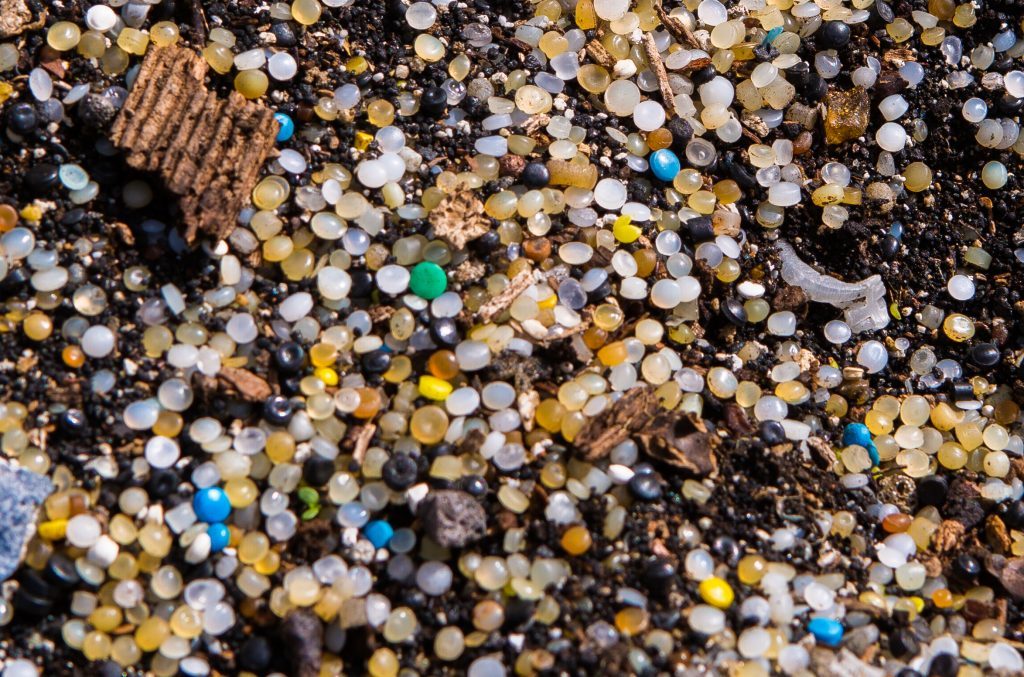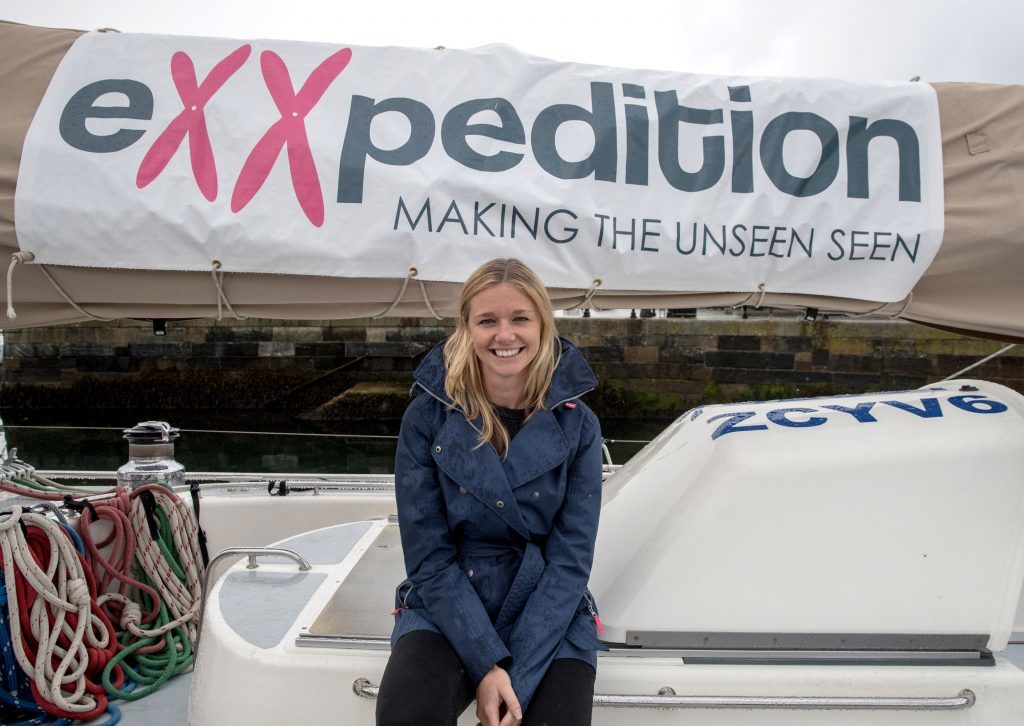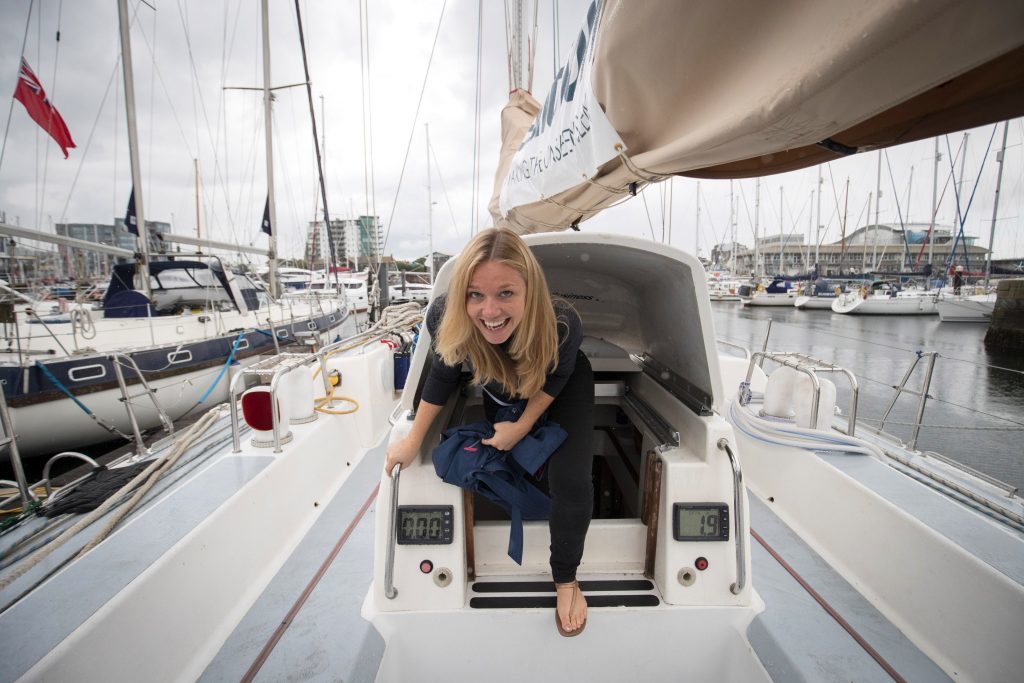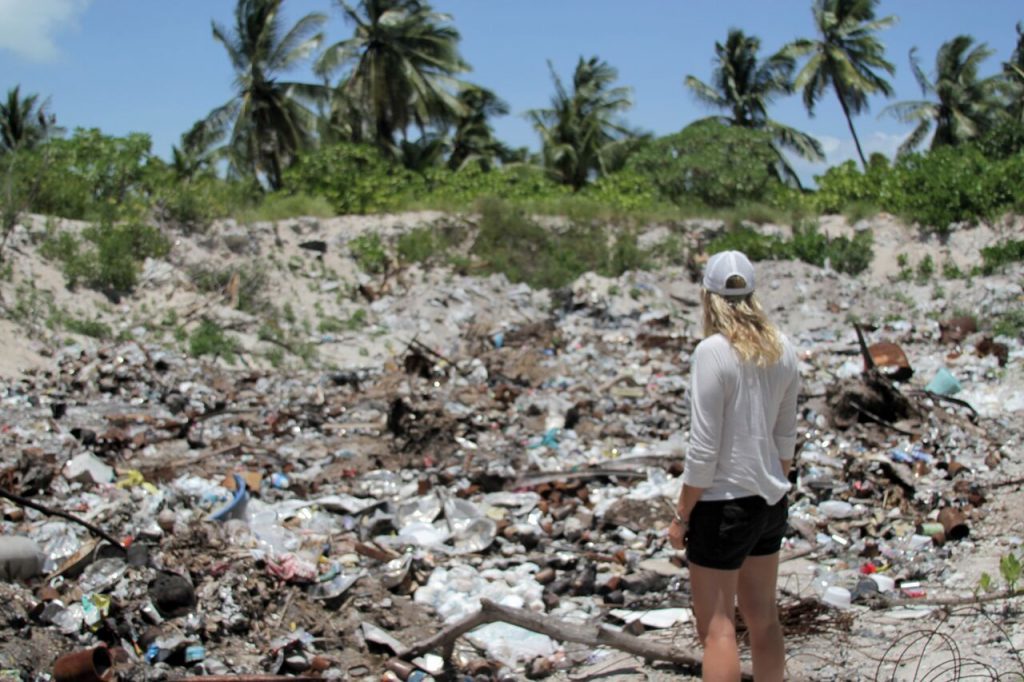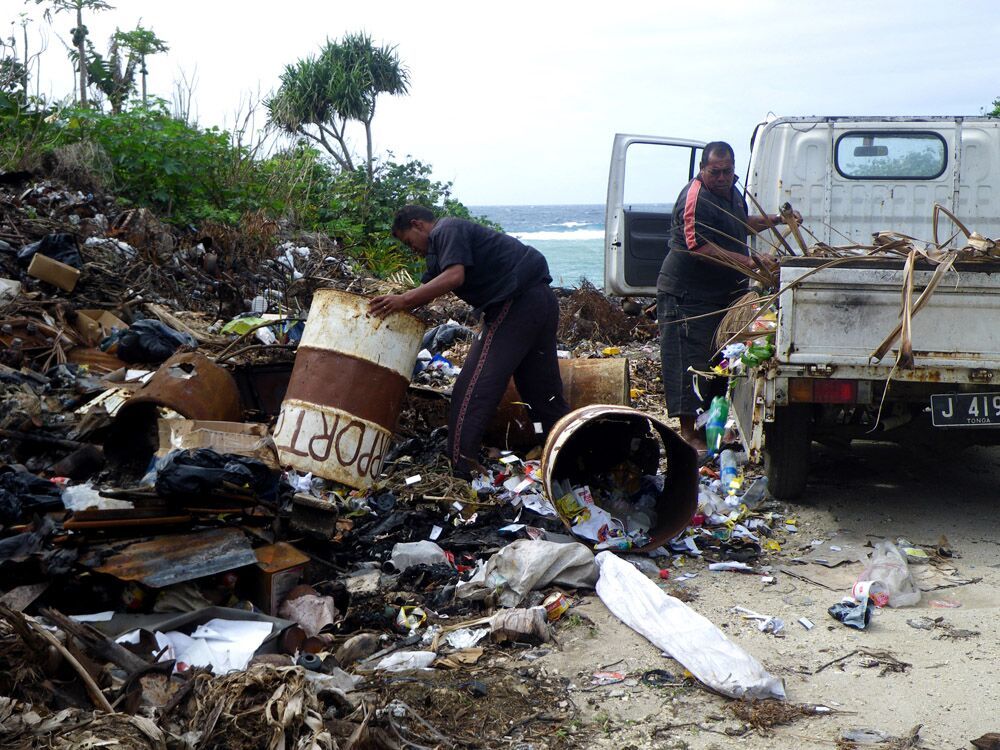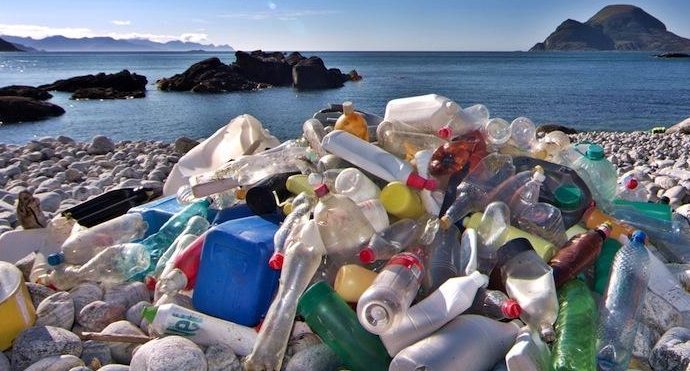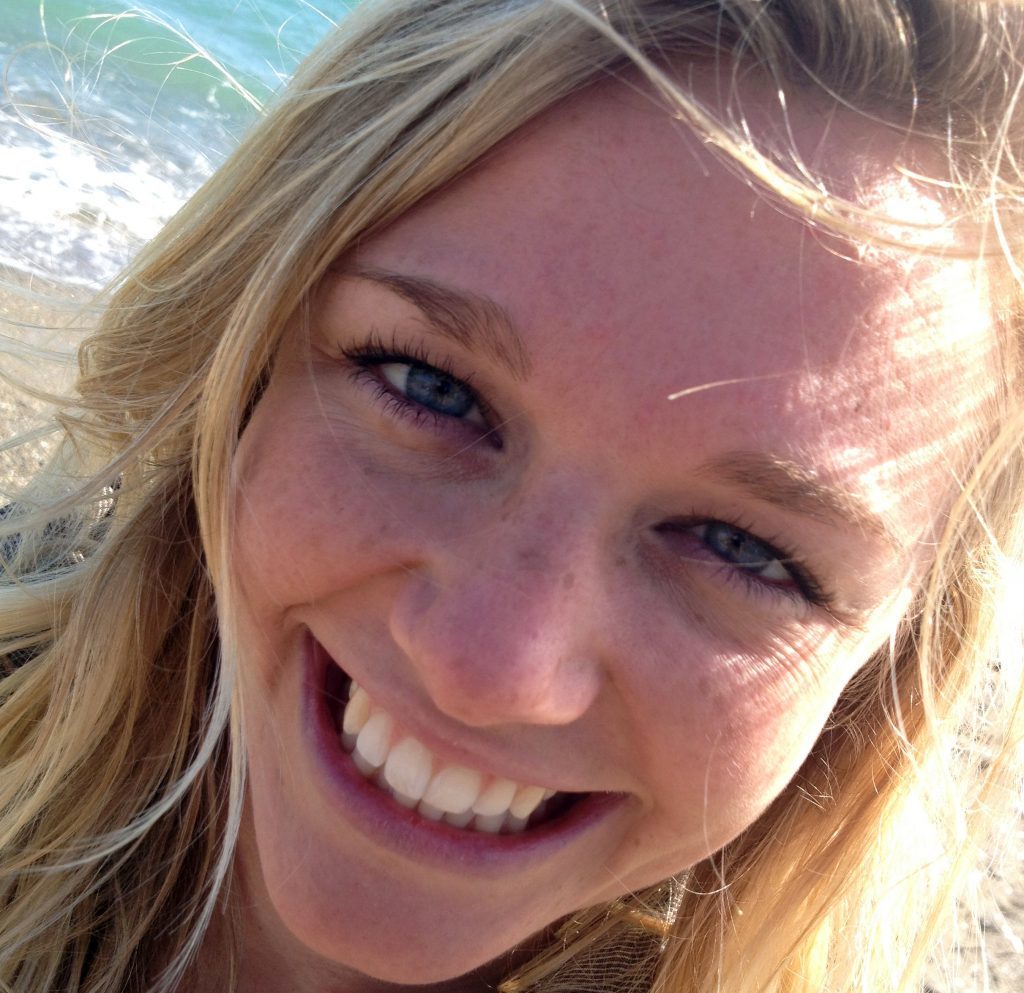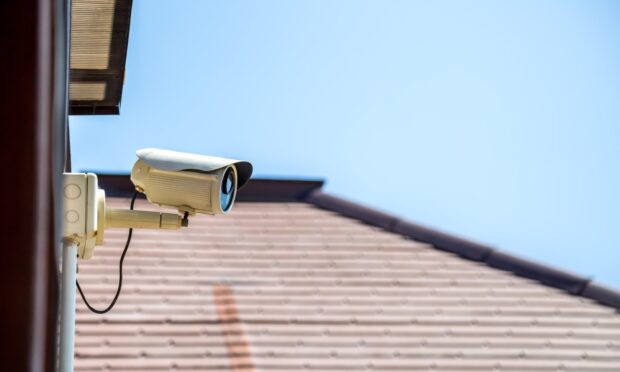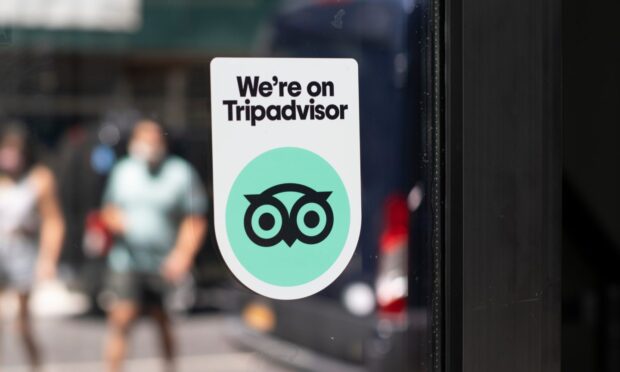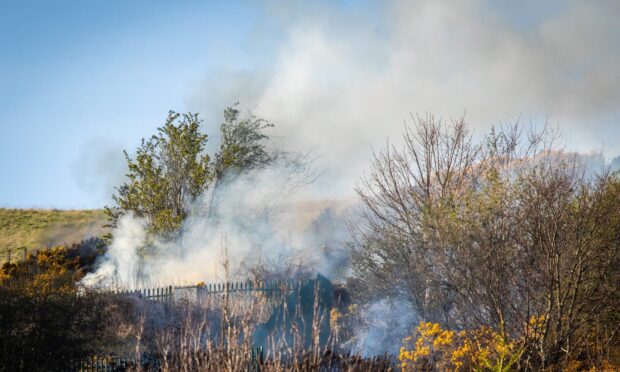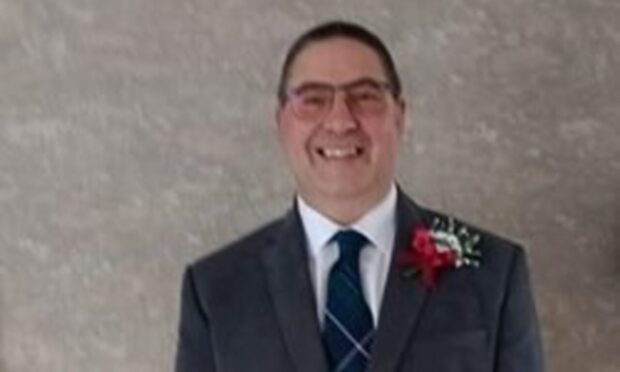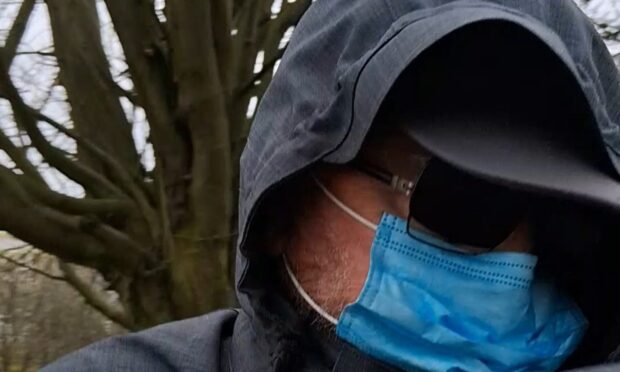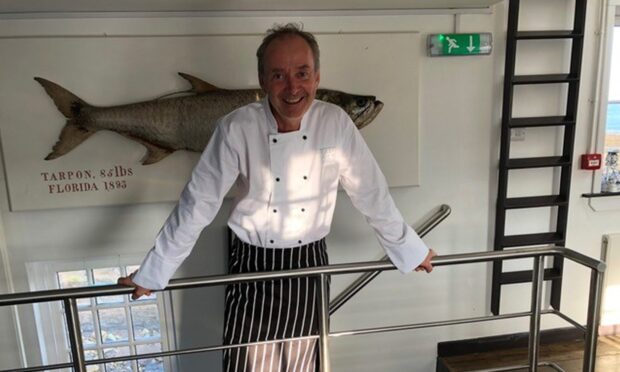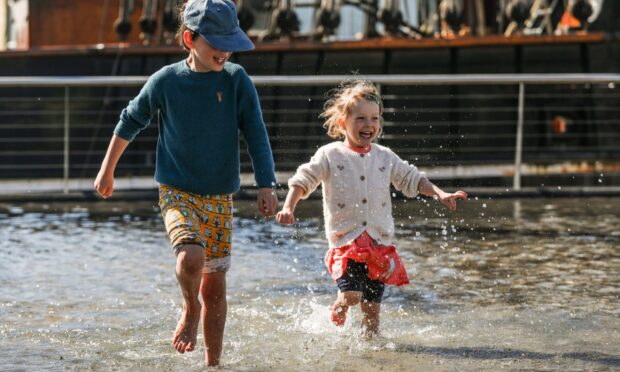Skipper, ocean advocate, artist and environmental campaigner Emily Penn is leading a Round Britain sailing expedition to draw attention to the plastic pollution, and its potential health implications, in our seas. Michael Alexander spoke to her about the campaign.
When a Courier photographer captured the extent of the plastic pollution blighting our shores during a photo call at the Queensferry Crossing last week, it drew attention to the fact that the Forth is a particular hot spot for the pollution menace.
Thousands of nurdles – small plastic pellets which are melted down in factories for the manufacture of plastic products – tend to wash up on most beaches, but estuaries tend to attract a higher number, and the Forth is no exception.
Now a world renowned yachtswoman and environmental campaigner is backing calls for a change in the law whereby it would be considered an offence to litter beaches with plastic.
Emily Penn, who has devoted most of her adult life drawing attention to the global issue, is supporting a suggestion by the Marine Conservation Society (MCS) and Green MSP Mark Ruskell that the issue should be raised in the Scottish Parliament.
It comes as Emily and her all-female crew visit Edinburgh on a pioneering Round Britain sailing expedition to raise awareness of the problem.
The female crew members, who set off on a 30-day voyage from Plymouth on August 8, include scientists, students, artists, filmmakers, business women, psychologists, ocean activists and sustainability professionals, who range from first-time to experienced sailors.
During their trip they are sampling the waters all around the UK from as far as 10 miles off shore, and have already taken samples from off the Tayside and Fife coast.
In an interview with The Courier, Emily revealed that evidence of Britain’s role in contributing to this global problem is growing.
And she hoped as many people as possible will engage with the campaign to pressurise government and industry for change “closer to the source of the problem”.
She said: “We have heard in the past a lot about clean-ups and thinking about the symptom – the plastic in the ocean – and trying to get that out.
“What we are really thinking about on this voyage is what can we do as individuals to actually avoid plastic completely?
“What can governments do to advocate those actions to ban certain types of plastics or put taxes on plastic?
“And then what can companies do – the people who actually manufacture these products, so that consumers actually have choice?
“That’s our real ask. We really see plastic more and more as a design problem.
“Companies are designing products that are being designed to be used once and then thrown away.
“But change only works if consumers, all of us, are willing to buy the products that are packaged in a new way and without plastic.
“It doesn’t work if we still want to have the cheap, easy convenient alternatives.”
Emily, 30, a Cambridge University architecture graduate from South Wales, first had her eyes opened to the global plastic pollution problem during a round-the-world sailing voyage at the age of 21.
She has since dedicated her life to developing environmental solutions and is delighted that after years of studying ocean plastics all over the globe, she has brought this project home to the UK.
Across the world, plastics are being washed into drains, rivers and sewers, and then because of the global system of rotating currents caused by the Coriolis Effect (of the spinning Earth), tonnes and tonnes of plastic is swirling together in massive pools in the oceans at 20 to 40 degrees north and south of the Equator.
There’s thought to be more than five trillion pieces of plastic weighing over 250,000 tonnes floating in the oceans.
The impact on sea life is evident. From dead albatrosses to whales with their stomachs stuffed with plastic, it’s estimated that 100,000 seabirds and 100,000 mammals die each year because of plastic pollution.
But there’s also growing concerns about the potential impact on human health to be concerned about.
She added: “The evidence of it getting into the human food chain is on-going at the moment.
“One line of inquiry that we have been looking at is the actual toxic chemicals that are in plastic. We do know we are getting those nasty chemicals inside of us. The big question is where are we getting them from?
“The most likely is that we are getting them direct from use of plastic through our daily lives.
“There’s a chance it’s also through pollution of plastics into the food chain and then into us. At the end of the day we know they are getting into us. Regardless of whether that’s happening direct or indirect, there’s enough evidence that we need change.”
Emily’s eXXpedition crew are sailing the 72ft challenge yacht Sea Dragon (owned by Pangaea Exploration). They will complete their sail in Plymouth on September 5.
The eXXpedition successfully raised £10,000 through crowdfunding for outreach activities at ports visited during the voyage. All sailing costs are covered by crew contributions.
It incorporates high-profile events in Edinburgh on Friday August 25 and Saturday August 26 including a Marine Conservation Society beach clean on Musselburgh Beach, and an event with MSPs.
